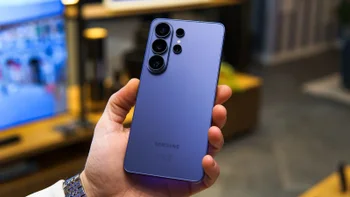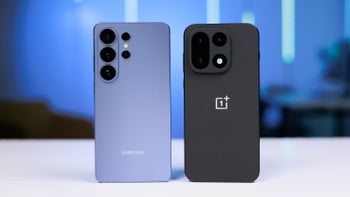Intel demoes Oak Trail tablets running Android Honeycomb, hints at a bright mobile future

While obviously far from fully-baked, some tablets with Android 3.0 Honeycomb have been lined up at Computex 2011, powered by Intel's Oak Trail chipset, just as promised. The current generation of the Atom family is running Android with some hiccups, it seems, but let's not forget this is a trade show, and the products showcased are far from final.
Intel boasted about more than 30 tablet designs with Atom inside, but for the ones not running Windows we don't really see the advantage before ARM-based tablets, like the iPad 2, or the Android ones, other than to prove the concept.
What's more interesting, though, are Intel's plans for its upcoming silicon. The chip giant is going down to a 22nm production process, and we should see the fruits of this insanely efficient effort as soon as Q1 of next year. Of course, ARM will not sit still in the meantime, and has some die shrinkage plans of its own, and one of its licensees, Qualcomm, announced yesterday that it is on track to ship a 28nm Snapdragon by year-end.
Intel's Medfield chipset, which is being developed specifically for smartphones, is also supposed to appear by the end of the year, so we should have some intriguing ARM-wrestling come the next generation of mobile silicon. Intel is not stopping either, though, it plans to speed up its production process die shrinkage from one every two years to one annually, and the 22nm will be the first out of the gate next year, followed by 14nm chipsets.
Intel also hinted that it is revamping entirely its philosophy towards mobile computing, and some of these future chipsets will be oriented towards placement in a very thin, very light category of devices, for which it trademarked the name Ultrabook. Intel also expects merging of netbooks with tablets. They will have touchscreens, but might have sliding keyboards as well, or swivel displays, and should get instantly on and always connected, with very good battery life. Intel said that we will be seeing very innovative converging form factors from now on - with the Samsung Sliding PC 7 Series, or the Asus PadFone concept, we couldn't agree more.
The world's largest chip manufacturer also clarified that it is not exactly been a loser in the tablet/smartphone push, as all these new devices have spearheaded demand for data centers to support them. Those data centers are mostly powered by Intel machines, it said, and that's where the high margins are.
source: Digitimes & Engadget
What's more interesting, though, are Intel's plans for its upcoming silicon. The chip giant is going down to a 22nm production process, and we should see the fruits of this insanely efficient effort as soon as Q1 of next year. Of course, ARM will not sit still in the meantime, and has some die shrinkage plans of its own, and one of its licensees, Qualcomm, announced yesterday that it is on track to ship a 28nm Snapdragon by year-end.
Intel's Medfield chipset, which is being developed specifically for smartphones, is also supposed to appear by the end of the year, so we should have some intriguing ARM-wrestling come the next generation of mobile silicon. Intel is not stopping either, though, it plans to speed up its production process die shrinkage from one every two years to one annually, and the 22nm will be the first out of the gate next year, followed by 14nm chipsets.
Intel also hinted that it is revamping entirely its philosophy towards mobile computing, and some of these future chipsets will be oriented towards placement in a very thin, very light category of devices, for which it trademarked the name Ultrabook. Intel also expects merging of netbooks with tablets. They will have touchscreens, but might have sliding keyboards as well, or swivel displays, and should get instantly on and always connected, with very good battery life. Intel said that we will be seeing very innovative converging form factors from now on - with the Samsung Sliding PC 7 Series, or the Asus PadFone concept, we couldn't agree more.
The world's largest chip manufacturer also clarified that it is not exactly been a loser in the tablet/smartphone push, as all these new devices have spearheaded demand for data centers to support them. Those data centers are mostly powered by Intel machines, it said, and that's where the high margins are.
source: Digitimes & Engadget
Follow us on Google News














Things that are NOT allowed:
To help keep our community safe and free from spam, we apply temporary limits to newly created accounts: